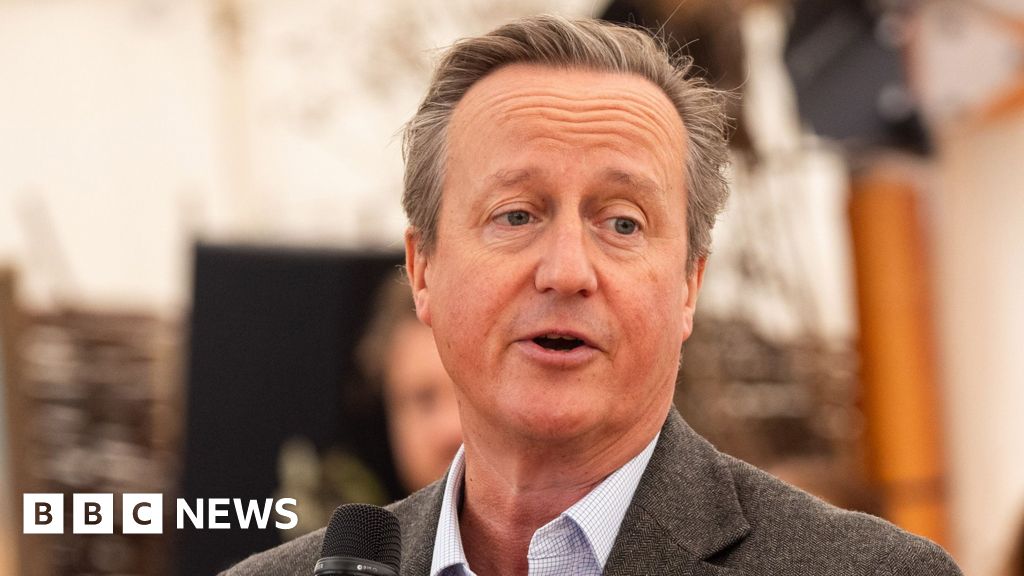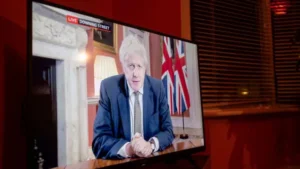Lord Cameron reveals he had prostate cancer
The former PM is calling for more men to be screened for the disease, which is the most common cancer in males in the UK.


Former Prime Minister David Cameron has revealed he has been treated for prostate cancer.
Lord Cameron, 59, told the Times newspaper his wife had insisted he go for a check-up after they listened to a BBC radio interview with entrepreneur Nick Jones, who was campaigning for more men to be tested after being diagnosed himself.
The Tory peer had a prostate-specific antigen (PSA) test earlier this year, followed by an MRI scan and a biopsy. He was then treated with focal therapy, which targets the area where the tumour is present using methods such as ultrasound waves to destroy cancer cells.
Prostate cancer is the most common cancer in males in the UK, with around 55,000 new cases every year.
A PSA test looks for proteins associated with prostate cancer and the result was high in Lord Cameron’s case.
He told the newspaper he wanted to use his platform to support a call by Prostate Cancer Research, a charity which counts Mr Jones – founder of private members’ club chain Soho House – as a trustee, for screening to be offered to high-risk men.
The cancer is most common in older age – particularly among men over 75. Cases in the under-50s are rare. It is also more common in black men.
“I don’t particularly like discussing my personal intimate health issues, but I feel I ought to,” Lord Cameron said.
“Let’s be honest. Men are not very good at talking about their health. We tend to put things off.”
But he said: “I sort of thought, well, this has happened to you, and you should lend your voice to it.”
Lord Cameron, Conservative prime minister between 2010 and 2016, and later foreign secretary in Rishi Sunak’s government, told the Times: “I would feel bad if I didn’t come forward and say that I’ve had this experience.
“I had a scan. It helped me discover something that was wrong. It gave me the chance to deal with it.”
There is currently no screening programme for prostate cancer in the UK because of concerns about the accuracy of PSA tests.
But the peer’s intervention comes days after a major prostate cancer screening trial began in the country. It is aimed at finding the best way to detect the disease by comparing it to current NHS diagnostic practices – which can include blood tests and biopsies.
Prostate Cancer UK is jointly funding the programme. Its director of health services Chiara De Biase praised Lord Cameron for sharing his story and raising “vital awareness”.
“We lose 12,000 dads, brothers, sons and friends to this disease every year. We’ve reached a tipping point in the UK, with too many men dying from a curable disease,” De Biase said.
“Prostate cancer is the last major cancer without a screening programme, and we need change now.”
Around one in eight men will develop prostate cancer in their lives, according to the charity, with research showing it has overtaken breast cancer as the most commonly diagnosed form of the disease in the UK.
Last year, the Scottish cycling champion Sir Chris Hoy called for more younger men to be tested for prostate cancer, following his own diagnosis.
Health Secretary Wes Streeting later said he had “asked the NHS to look at the case for lowering the age” for routine PSA tests. Current NHS guidelines for England say anyone can request a test if they are over the age of 50.
Sir Chris, 49, has advanced cancer that has spread to his bones and is terminal. It was discovered after a routine scan for shoulder pain revealed a tumour.
Speaking to the BBC last November about his diagnosis, the Olympic champion said it was “the biggest shock of my life”. He added: “My perspective on life has changed massively. I am more thankful, I’m more grateful for each day.”






